Many businesses adapt to "green" transformation
On the afternoon of November 18, Cong Thuong Newspaper organized a discussion on "The 'greening' trend in brand building: Opportunities and challenges" in Hanoi .
According to the Ministry of Industry and Trade , the greening trend in brand building is becoming more and more popular. Many businesses have made efforts to invest in production to create products with "green", "clean" elements, environmentally friendly and increasingly meet the needs of consumers. The trend of consuming green products is not only in Europe, but is also increasingly blooming in many countries. The trend of green living and green consumption poses new problems for Vietnamese brands to adapt to the general development trend and enhance their position and increase competitiveness in both domestic and foreign markets.
Appreciating the greening efforts of Vietnamese enterprises in general, and national brand enterprises in particular, at the seminar, Mr. Ta Manh Cuong - Head of Trade Promotion Capacity Development Department - Trade Promotion Agency - Ministry of Industry and Trade said that green transformation and digital transformation are also topics in the National Brand Program 2024. At the 9th voting round this year, national brand enterprises have shown their pioneering nature, leading the industry, leading the field, meeting many "green" criteria.
 |
| The seminar "The trend of "greening" in brand building" was held on the afternoon of November 18. Photo: Quoc Chuyen |
“To be selected as a national brand, businesses must undergo and meet a very strict system of quality criteria, which are legalized by the guiding circulars of the Ministry of Industry and Trade, and then the Prime Minister 's decision. National brand products not only meet the requirements of quality and innovation, but also have the ability to pioneer in the market. In addition, businesses must also fulfill their responsibilities to society and the community,” said Mr. Cuong.
Notably, according to Mr. Cuong, a noteworthy point is that this year, many businesses, including in the industrial, agricultural, food and service sectors, have met the green transformation and digital transformation standards.
“For example, Vingroup, a business that has achieved national brand status with Vinfast products such as electric cars and electric motorbikes, is a transformation that is in line with the global green trend.
Or in the food and beverage sector, there are TH Truemilk or Vinamilk. These are food production enterprises but have focused on standards from raw material areas to processing, green production to meet environmental protection criteria" - Mr. Cuong cited.
 |
| Mr. Ta Manh Cuong - Head of Trade Promotion Capacity Development Department - Trade Promotion Agency - Ministry of Industry and Trade. Photo: Quoc Chuyen |
In addition to the efforts with many positive results from the current business community, the reality shows that building a green brand along with opportunities also poses many challenges for businesses, especially in the integration trend. Sharing about this issue at the discussion, communication expert Nguyen Dinh Thanh - who has a lot of experience supporting businesses in building brands, said that many businesses in general, businesses that have achieved the Vietnamese national brand, are now paying much attention to the field of environment and sustainable development, showing that this is not only a change in awareness but also a change in the actions of businesses.
“Since the 1960s, the world has had a mindset of sustainable development. Accordingly, in the 1980s and 1990s, from the needs of consumers, it was proven that “the money I spend must not only bring me happiness but also ensure that it does not harm the environment and, more importantly, does not harm society”. Accordingly, we must understand that the green factor is sustainability, not only about nature and the environment, but also about the relationships between people and nature and people with people” – Mr. Thanh said.
When sustainable development becomes a must
In fact, research by Nielsen Company shows that in Vietnam, in recent times, brands with green and clean commitments have had a fairly high growth rate, about 4%/year and up to about 80% of Vietnamese consumers are willing to pay more to buy products with environmentally friendly materials and green and clean brands. This means that people's consumption trends for products made from environmentally friendly materials also tend to increase.
Emphasizing the role of sustainable development in the global trend, expert Nguyen Dinh Thanh pointed out that previously, in September 2015, the 2030 Agenda with 17 SDGs was approved by the United Nations General Assembly to aim at eliminating hunger and reducing poverty, protecting the planet and ensuring that all people enjoy peace and prosperity by 2030.
“Accordingly, one of the criteria that businesses must respect is the environmental factor, respect social balance and be managed according to the best standards. In fact, when Vietnam's economy is approaching the world, it is mandatory that we meet global standards, not only for export, but also domestically, many businesses will be "boycotted" or restricted if they violate the environment and affect public health" - expert Thanh said.
 |
| Media expert Nguyen Dinh Thanh shares at the discussion. Photo: Quoc Chuyen |
Citing the benefits of green transformation adaptation, expert Thanh said that, for example, in production areas such as packaging, many businesses have launched products from areca spathe and banana leaves that have been preferred by consumers. This means that Vietnamese consumers have become more aware and have higher demands for sustainable and environmentally friendly products. And in the world, international customers' needs today also require a great deal of thinking in terms of design, production, packaging and transportation.
Therefore, it can be seen that this is both an opportunity if our businesses can approach world standards, but, besides that, the challenge is also very big. Because to meet, businesses must overcome barriers of very strict regulations, and are required to change to the root in the production process and ensure that it does not harm the environment and is user-friendly. Accordingly, it requires businesses to make efforts and have inter-sectoral coordination in the entire production process if they really want to achieve the goal of sustainable development and participate more deeply in global value chains.


![[Photo] National Assembly Chairman Tran Thanh Man chairs the 8th Conference of full-time National Assembly deputies](https://vphoto.vietnam.vn/thumb/1200x675/vietnam/resource/IMAGE/2025/9/29/2c21459bc38d44ffaacd679ab9a0477c)
![[Photo] General Secretary To Lam attends the ceremony to celebrate the 80th anniversary of the post and telecommunications sector and the 66th anniversary of the science and technology sector.](https://vphoto.vietnam.vn/thumb/1200x675/vietnam/resource/IMAGE/2025/9/29/8e86b39b8fe44121a2b14a031f4cef46)
![[Photo] General Secretary To Lam receives US Ambassador to Vietnam Marc Knapper](https://vphoto.vietnam.vn/thumb/1200x675/vietnam/resource/IMAGE/2025/9/29/c8fd0761aa184da7814aee57d87c49b3)


![[Photo] Many streets in Hanoi were flooded due to the effects of storm Bualoi](https://vphoto.vietnam.vn/thumb/1200x675/vietnam/resource/IMAGE/2025/9/29/18b658aa0fa2495c927ade4bbe0096df)




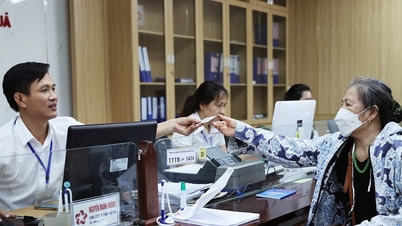

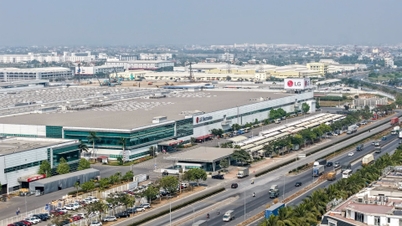

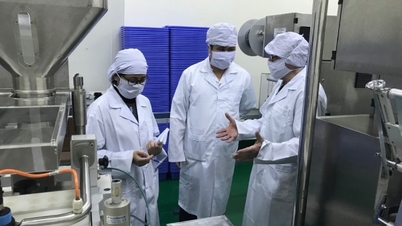

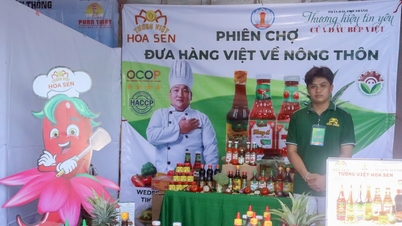



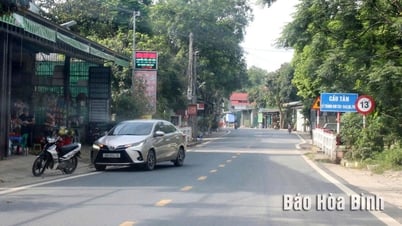


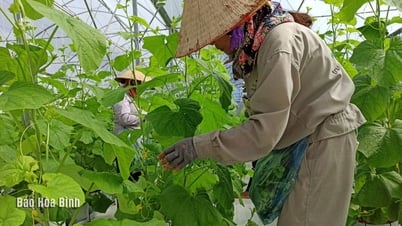
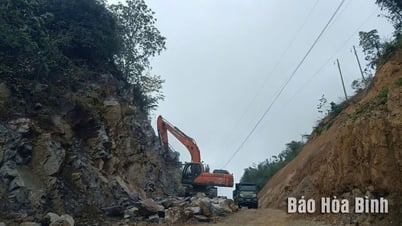


















































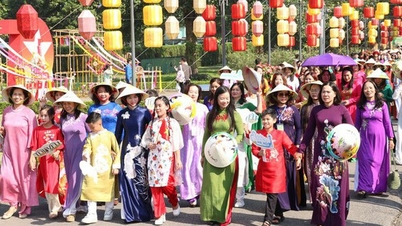
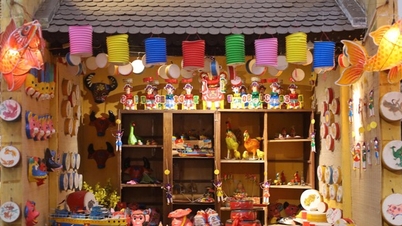




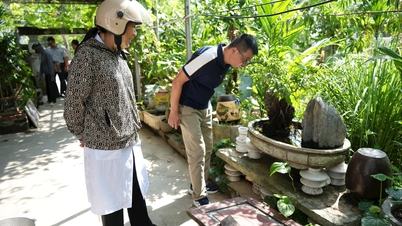


















Comment (0)